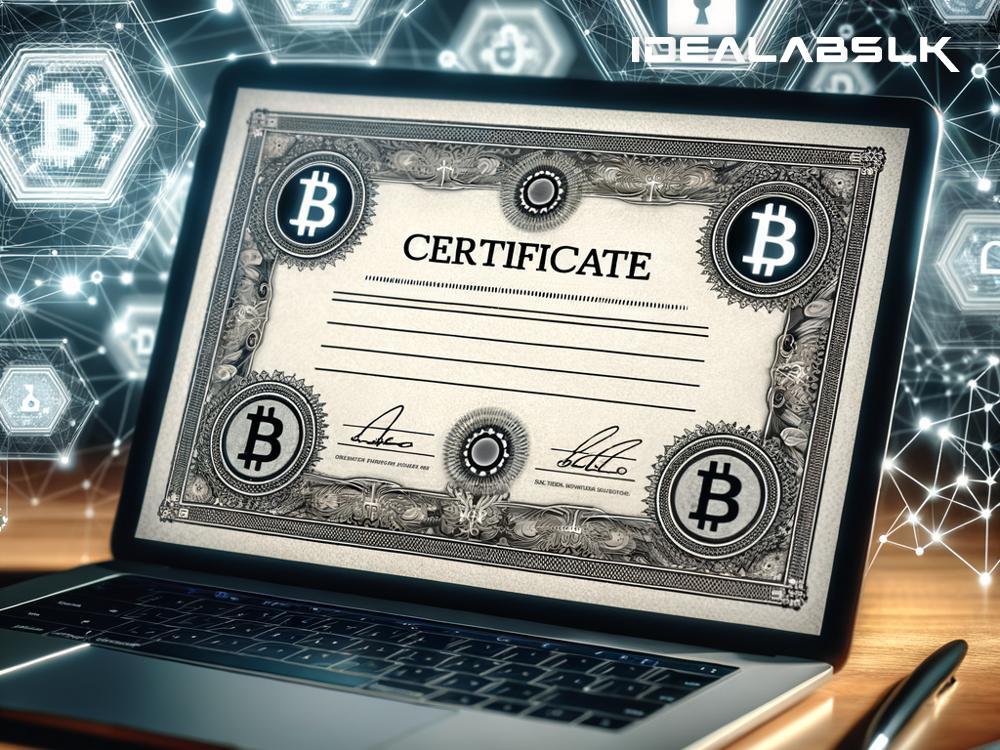How Blockchain Will Shape Digital Credentials: A Simple Guide
In today's fast-paced digital world, the way we think about credentials is undergoing a massive transformation. Gone are the days when a paper certificate was the only proof of your achievements and qualifications. Enter Blockchain, a groundbreaking technology, poised to revolutionize the world of digital credentials. But what is it exactly, and how will it reshape digital credentials? Let's break this down into simpler terms.
Understanding Blockchain
Imagine a giant, public ledger that is completely secure, transparent, and immutable, meaning once something is recorded, it cannot be tampered with or changed. That's Blockchain for you. It's the technology behind cryptocurrencies like Bitcoin, but its potential stretches far beyond just financial transactions.
The Problem with Current Digital Credentials
In the existing system, digital credentials like certificates from universities or professional courses are usually stored and controlled by the issuing institutions. This setup has several drawbacks. For starters, verifying these credentials can be time-consuming and prone to errors. If the institution's database is hacked or the data is lost, it could mean trouble for both the institution and the credential holder. Plus, because the data is centralized, verifying the authenticity of a document can be challenging, leading to issues like fraud and forgery.
Enter Blockchain
Now, let’s explore how Blockchain can offer a compelling solution to these problems.
-
Decentralization: Unlike traditional methods, where a single entity controls the data, Blockchain operates on a decentralized network. This means that digital credentials are distributed across many computers, making the system more robust against attacks and data loss.
-
Security: Blockchain uses sophisticated cryptography to ensure that once a credential is issued, it cannot be altered or deleted. This makes forgery or tampering practically impossible.
-
Transparency and Verification: Any stakeholder, be it an employer, another educational institution, or a verification agency, can instantly verify the authenticity of the digital credentials without needing to contact the issuing institution. This greatly reduces the time and resources spent on verification.
-
Ownership: Perhaps one of the most empowering aspects of Blockchain-based digital credentials is that it gives ownership of credentials to individuals. Unlike traditional systems where your data is held by institutions, on the blockchain, you control your credentials through private keys - kind of like having a personal digital wallet for your achievements.
The Impact on Digital Credentials
So, what kind of changes are we expecting to see as Blockchain starts to shape the future of digital credentials?
-
Streamlined Verification Process: For employers or any entity needing to verify credentials, Blockchain could represent a monumental shift. Instant verification means a smoother hiring process, reduced fraud, and increased trust in credentials presented.
-
Increased Access and Mobility: With Blockchain, your credentials are portable and easily shareable, without worrying about losing the original document or requesting duplicates from institutions. This ease of access will especially benefit people who need to move between countries or change jobs frequently.
-
Lifetime Achievement Records: Since Blockchain is immutable and secure, your digital credentials can essentially form a comprehensive, lifelong record of your learning and achievements that is easily accessible and verifiable at any point in time.
-
Empowering the Unbanked and Underprivileged: Blockchain has the potential to dramatically improve the lives of the billions of people around the world who lack access to formal education and banking systems. By allowing for secure, verifiable credentials for even informal or community-based learning experiences, Blockchain can give individuals the evidence they need to advance their careers or start a business.
What’s Next?
As we stand on the cusp of this digital revolution, it's clear that the adaptation of Blockchain technology for digital credentials could herald a new era of transparency, security, and empowerment. However, widespread adoption will require collaboration between tech developers, educational institutions, policymakers, and other stakeholders to address challenges such as digital literacy and the digital divide.
The road ahead is exciting and full of promise. As Blockchain technology matures and more people understand its potential, we're likely to see innovative uses that we can't even imagine today. The shift towards Blockchain-based digital credentials is not just about leveraging technology; it's about reimagining what a connected, fair, and transparent world could look like.
As we navigate through these changes, one thing is clear: the future of digital credentials is bright, and Blockchain is set to play a starring role in shaping it.

